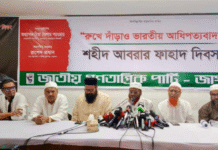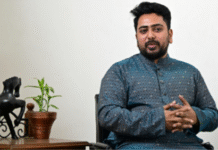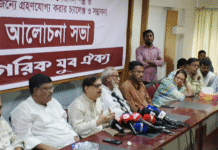THE Awami League’s urging people’s support for the party in the next parliamentary elections ‘to keep up democratic rule’ is all but a pointer to what the party understands by democracy. The party put out the call at rallies in Dhaka on Thursday marking the third anniversary of the January 5, 2014 ‘national elections’ through which the Awami League retained power amidst boycott of the elections by most of the political parties. When the Awami League retained power through the 2014 elections, it had 153 of its candidates, out of the 300 parliamentary constituencies, elected ‘uncontested’ before the actual polling took place. With such a large number of parliamentary seats, which was enough to form the government, elected without a single vote being cast, the elections thus came to be questioned at home and abroad and this did more so as all the opposition parties opted out, or were forced to opt out, of the process. This only weakens the political legitimacy of the elections, which is the prime criterion of a democratic polity. Since the elections, if at all, the Awami League has retained power using coercive mechanism, using the bureaucracy and the law enforcement agencies to crush any dissent.
The Awami League, which ensconced itself in power and started shrinking the democratic space for dissent, which is another driving force of a functional democracy, in a big way riding on the weight that the bureaucracy and law enforcement agencies, both pampered with promotions and other facilities, threw behind the party. This led to further shrinking of democratic space as opposition parties and anyone opposed to the government’s views and critical of the government policies, came to be harassed, repressed and tortured off and on in a way that borders on extra-legal affairs that the government should not do, not at least in the interest of the rule and the due process of law, only a sound state of which make democracy functional. In a fallout of the 2014 national elections, the subsequent holding of elections to the upazila councils in 2014, two city corporations, Dhaka and Chittagong, in April 2015 and union councils in 2016 came to be mired in electoral fraud such as booth-capturing, ballot-stuffing, intimidation and the use of muscle, along with associated violence which killed a number of people, betraying the Awami League’s take-all attitude and degrading the political culture and democratic institutions. Still, it wants people to believe that the Awami League is serving democracy and anyone that does not accept the idea such as the opposition Bangladesh Nationalist Party, was exposed attacks in many cases on Thursday.
Now added to this, the executive has stood off the judiciary over its separation from the powers, which are reported to have wielded the stick over the subordinate judiciary, obstructing justice dispensation and delaying justice in the process. With the exercise of political power not respecting the law, the constitution and the will of the people, the Awami League has let loose plunder in banking institutions, many of which have already been bled dry, and in the development works, including the power and communications sectors, where money has more been in focus than the work itself, allowing many to line their pockets with public money. The situation has reached such a pass that no one can stand up against any anomaly or corruption and people doing so have only coercive action forthcoming against them. In such a situation, the Awami League must not impose on people what it considers a victory day for democracy and hold proper, participatory national elections for democracy to be restored.
The Awami League, which ensconced itself in power and started shrinking the democratic space for dissent, which is another driving force of a functional democracy, in a big way riding on the weight that the bureaucracy and law enforcement agencies, both pampered with promotions and other facilities, threw behind the party. This led to further shrinking of democratic space as opposition parties and anyone opposed to the government’s views and critical of the government policies, came to be harassed, repressed and tortured off and on in a way that borders on extra-legal affairs that the government should not do, not at least in the interest of the rule and the due process of law, only a sound state of which make democracy functional. In a fallout of the 2014 national elections, the subsequent holding of elections to the upazila councils in 2014, two city corporations, Dhaka and Chittagong, in April 2015 and union councils in 2016 came to be mired in electoral fraud such as booth-capturing, ballot-stuffing, intimidation and the use of muscle, along with associated violence which killed a number of people, betraying the Awami League’s take-all attitude and degrading the political culture and democratic institutions. Still, it wants people to believe that the Awami League is serving democracy and anyone that does not accept the idea such as the opposition Bangladesh Nationalist Party, was exposed attacks in many cases on Thursday.
Now added to this, the executive has stood off the judiciary over its separation from the powers, which are reported to have wielded the stick over the subordinate judiciary, obstructing justice dispensation and delaying justice in the process. With the exercise of political power not respecting the law, the constitution and the will of the people, the Awami League has let loose plunder in banking institutions, many of which have already been bled dry, and in the development works, including the power and communications sectors, where money has more been in focus than the work itself, allowing many to line their pockets with public money. The situation has reached such a pass that no one can stand up against any anomaly or corruption and people doing so have only coercive action forthcoming against them. In such a situation, the Awami League must not impose on people what it considers a victory day for democracy and hold proper, participatory national elections for democracy to be restored.
Source: New Age










